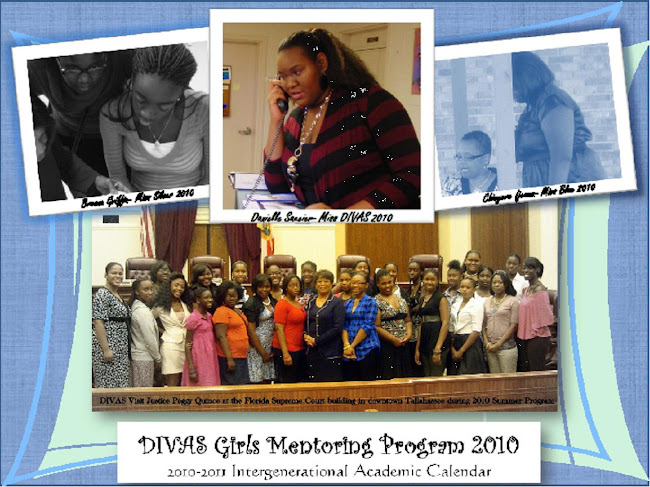In eleven years of mentoring teenage girls in Southside Tallahassee, there is one constant that you can always look forward to... Drama. When kids are young, I blame it on television that everything they say or think is overstated, overdramatized, and excitable. Just look at how cartoon characters talk- it teaches children to be, well, dramatic. Now, fast-forward 10 years to adolescence. Almost a decade of training, raising, and teaching and most young women seem to get worse with the drama factor.
You can always tell when it's about to happen; factions that were once aligned suddenly begin separating and drawing attention from 1-3 other persons whom you haven't seen these folks 'hanging with' before. Then there's the 'sitting on opposite sides of the room with the persons of interest', staring across the way at the other group as the whispers continue. Then, one girl- I call her the 'reporter'- who has gathered all of the facts of the contention, is finally ready to air the details to the group at large. It's funny- it kinda plays out like a script without an appointed director. However, it is amazing how despite the unique situations that spring forward, the format somehow remains the same.
The role of the group facilitator is to find out the root source of the contention and attempt to snuff it out. But what can you do when problems outside of the program are the root source? You can't just go and deal with the 'momma and 'em'... that is outside of your professional scope. You are somewhat limited in what you can do with the participant, because your counsel may be viewed as out of line and you know that children are prone to misunderstand and miscommunicate almost anything. What can you do? Well, in the case of the immediate contention, I would not advise just sweeping it under the rug and letting the kids 'figure it out'... there has to be a mediator present in order to assist in helping them sort out the issues and if one of their peers can't do it, then more than likely, as a leader, you need to. The absence of such will aid in permitting the situation to escalate into something altogether more dramatic and potentially violent.
With this in mind, I am a huge advocate of required teaching of conflict resolution skills to teens. The pressure to be in power either by intimidation or other 'calls to fames' is real, and without the knowledge of how to approach situations through a process of logic and thought is setting them up for failure and poor behavior in public. A lot of the conflicts have little to do with what the children actually do themselves- domestic and economic issues at home, fearfulness that needs for proper participation won't be provided, and the shame associated with the two manifest themselves in the group drama. However, it took years for me to understand that my job is not to solve the 'home problems' of the young ladies I work with... it is to provide a safe place in the midst of their common reality and a right example for them to follow.
I don't know that we realize the impact we have on our youth when we teach them to personally confront their issues. As tough as they talk, teens battle with all of the negativities of the world within the framework of an immature and uneducated perspective- the world around them says they are not good enough, smart enough, rich enough, valuable enough, pretty enough- nothing is enough, and they project all of those negativities on each other- hence the fuel for he drama. Unfortunately as adults, we sometimes run away from the issues when they manifest when they are really opportunities to serve as teaching moments and to give them the real truth concerning themselves to combat the negativeness at play. Sometimes the drama they are acting out is not even their script; they are lines being audited to them by parents and/or guardians based on circumstances that have nothing to do with the child. In those cases, process-based thought would help the teen maintain the honor due to that parent while teaching them how to logically and rationally approach issues. More importantly, it may keep them from projecting on each other!
Our young women are precious and need to be treated as such. We have to arm them with the tools necessary to help them overcome drama and help have a positive impact on each other. The DIVAS will be participating in several modules of training during our Summer program. It is our hope that the knowledge they receive would be useful in helping them become trusted leaders among their peers. Let me know your thoughts... Blessings!CH
Saturday, June 19, 2010
Subscribe to:
Post Comments (Atom)


No comments:
Post a Comment